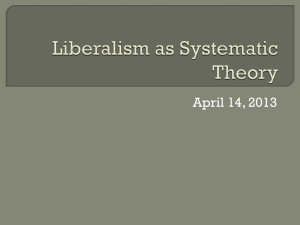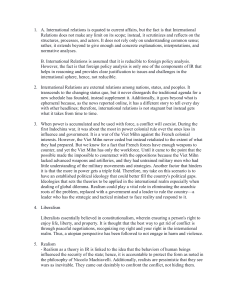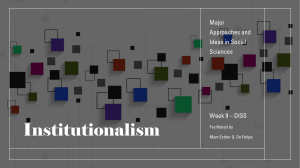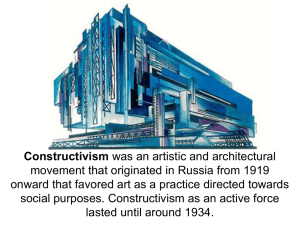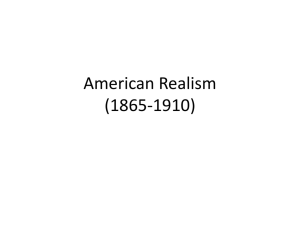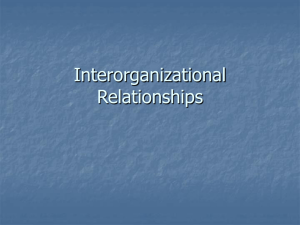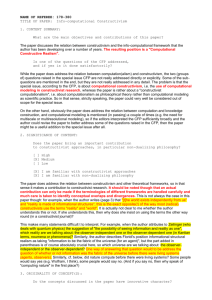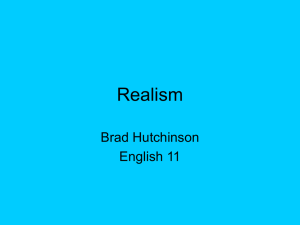The Concept of Regional Power as Applied to the Middle East
advertisement
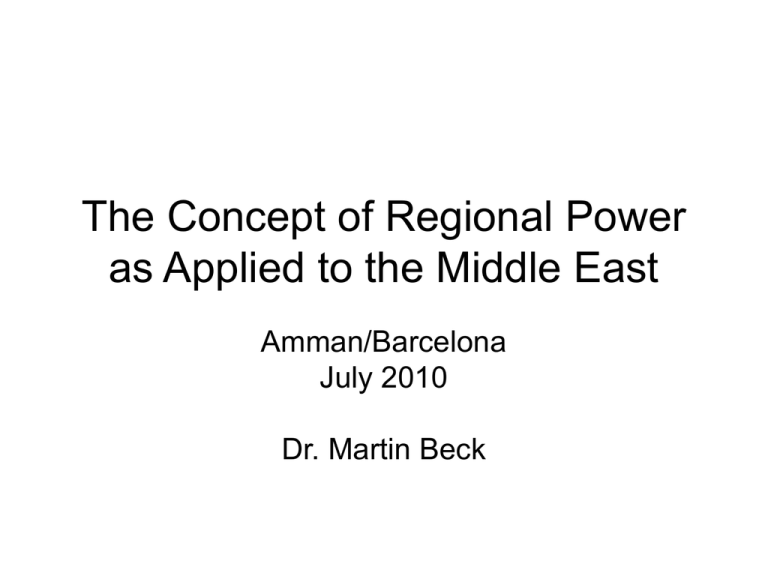
The Concept of Regional Power as Applied to the Middle East Amman/Barcelona July 2010 Dr. Martin Beck Content • 1. Empirical Observation: No regional power in the Middle East • 2. Research Question: If not by regional powers, how then is regional politics determined in the Middle East? • 3. Three approaches based on IR schools of thought • 4. Empirical Applications • 5. Conclusion 1. Empirical Observation: No regional power in the Middle East • Definitional Elements: (a) disposal over high capabilities (b) being integrated into the region and its fora (c) acceptance as a regional power 1. Potential Regional Powers Egypt Israel Saudi Iran Arabia Turkey Capabi lities + -/+ -/+ -/+ Integra -/+ tion - -/+ - -/+ Accept -/+ ance - -/+ - -/+ 2. Research Question • If not by regional powers, how then is regional politics determined in the Middle East? • Three approaches based on IR schools of thought: - Structural Realism (Neo-Realism) - Institutionalism (Neo-Liberalism) - Constructivism 3. Three Approaches School of Structural Thought Realism Institutionalism Constructivism Basic Issue Challenge of Challenge of Regional Unipolarism Globalisation Identity Engine Power Distribution Example (Asia) Power Role of Triangle US, ASEAN China, Japan Regional Cooperation Regional Discourse Shaping the Discourse 3. Three Approaches: Empirical Observations • 1. Structural Realism - Power is highly dispersed in the Middle East - US-American power capabilities in the Middle East are superior to those of regional actors • 2. Institutionalism - Insignificance of regional institutions - Regional cooperation mostly brokered by the US • 3. Constructivism - Identity: No positive joint vision, no shared identity - Negative shared attitude/ideology of Anti-Americanism 4. Application I: Deriving Hypotheses for Country Studies School of Thought Structural Institutiona- ConstructiRealism lism vism Prognoses of Regional Policies of Potential Regional Powers Preventing the Emergen ce of a Regional Power Extraregional rather than Regional Cooperation Focus on National (or Global) Discourses 4. Application II: Conflict Analysis School of Thought Structural Realism Institutiona- Constructilism vism Conflict Character Power Conflicts Nonregulated Conflicts Example: IsraeliIranian Conflict Power Rivalry Limits of Zionism IAEA, NPT, versus UN Securi- Islamism ty Council Identity Conflicts 5. Conclusion • The Middle East is a highly disrupted multipolar region with a low degree of regional cooperation and identity building. Regional affairs of the Middle East are shaped in a way Structural Realists believe international affairs are shaped in general. • The IR schools produce prognoses on single states‘ behaviour that appear mutually compatible with each other. • The IR schools also produce conflict analyses that are mutually compatible with each other rather than competetive. • However, this does not apply to policy advisory.
